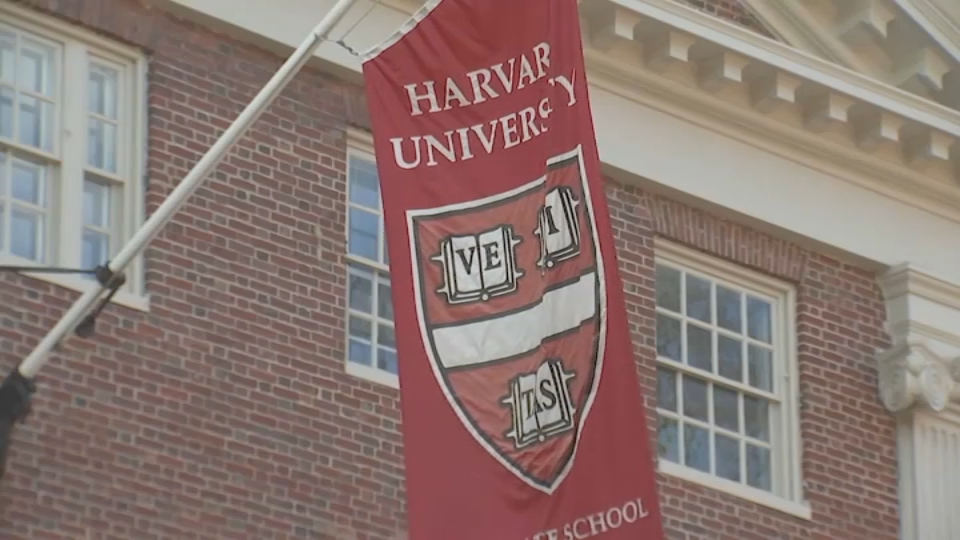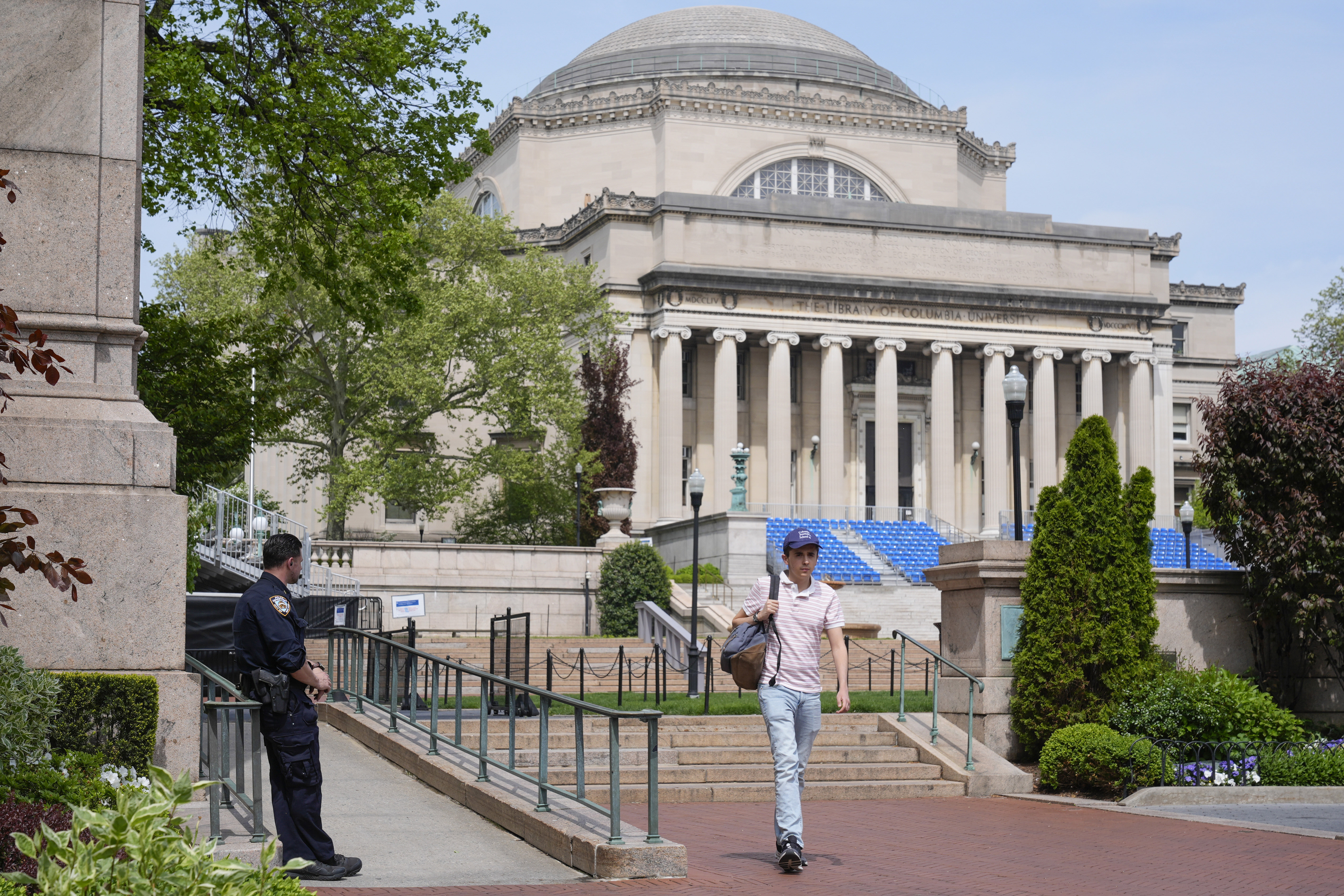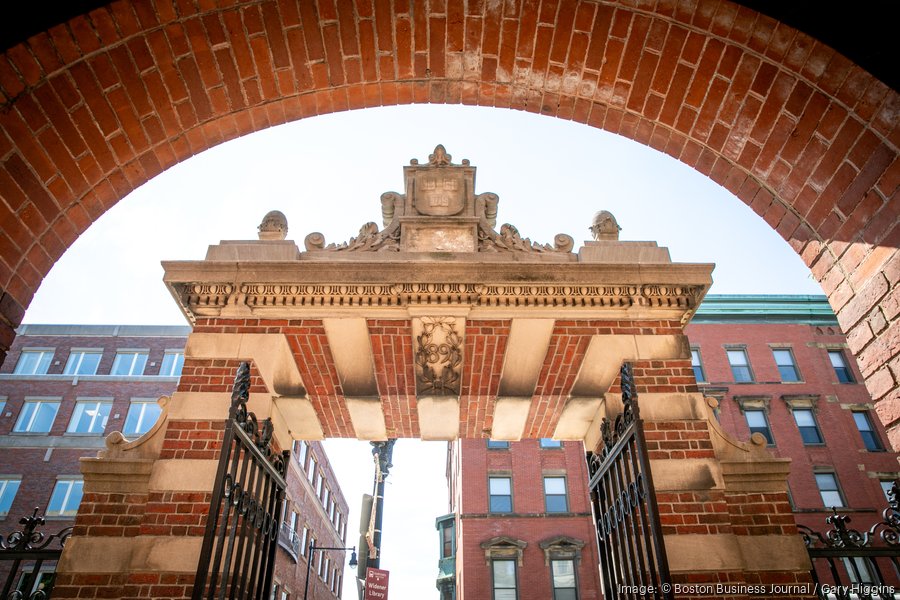Harvard Faculty's 10% Pledge: Fighting for Academic Freedom!
Harvard Faculty Unite: Pledge 10% of Pay in Trump Funding Dispute
Introduction: A Show of Solidarity at Harvard
What happens when an institution's core values are challenged? At Harvard University, the answer is clear: its faculty stands together. Senior members of Harvard's esteemed faculty have pledged to donate a portion of their hard-earned salaries back to the university, a powerful demonstration of solidarity in the face of funding cuts initiated by the Trump administration. This isn't just about money; it's about principle, academic freedom, and the very future of higher education. Think of it like a modern-day David facing Goliath, but with tenured professors wielding their paychecks instead of slingshots.
The Genesis of the Dispute: Trump Administration's Funding Freeze
The Trump administration’s decision to freeze over $2 billion in federal funding for Harvard University lit the fuse of this conflict. But why? The official rationale often cited involved concerns about endowments and resource allocation. However, many saw it as a broader attack on institutions perceived as being politically liberal or critical of the administration. Was this a genuine concern, or a targeted move to silence dissenting voices? The answer, as always, is complex and likely lies somewhere in between.
Harvard's Legal Response
In response to the funding freeze, Harvard University didn't back down. They filed a lawsuit, a bold move that signaled their intent to fight what they considered an unjust and politically motivated attack. This lawsuit became a pivotal moment, turning a funding dispute into a high-profile legal battle. It highlighted the growing tension between the academic world and certain political agendas.
The 10% Pledge: A Faculty-Led Initiative
The faculty's response was nothing short of remarkable. Organizers circulated a letter, urging senior faculty members to commit 10% of their paycheck for a year, or until the funding situation was resolved. This wasn’t a mandatory levy; it was a voluntary act of defiance, a symbol of unity and commitment to the university's mission. Think of it as crowdfunding, but instead of relying on small donations, it leverages the financial power of Harvard's most experienced educators.
The Rationale Behind the Pledge
Why 10%? Why not 5% or 20%? The number likely represents a balance between making a significant contribution and avoiding undue financial hardship. It’s a symbolic gesture, but a substantial one. It sends a powerful message: "We are willing to put our money where our mouth is."
Impact and Significance: More Than Just Money
The financial impact of the faculty pledge is certainly significant, helping to offset some of the lost federal funding. However, the true impact goes far beyond dollars and cents. It's a powerful statement about the values Harvard faculty hold dear: academic freedom, institutional autonomy, and the pursuit of knowledge without political interference. It's a symbol of resistance against what they perceive as an overreach of political power.
Setting a Precedent?
Could this pledge become a model for other universities facing similar challenges? It's certainly possible. It demonstrates a creative and proactive approach to dealing with funding cuts and political pressure. Other institutions may look to Harvard’s example as they navigate their own challenges.
The Broader Context: Funding in Higher Education
The Harvard funding dispute highlights a larger issue: the increasingly complex relationship between government funding and higher education. How much control should the government have over universities that receive public funding? Where do we draw the line between oversight and interference? These are questions that have been debated for decades, and this case adds another layer of complexity.
The Role of Endowments
Universities like Harvard have substantial endowments, often worth billions of dollars. These endowments are intended to provide financial stability and support long-term academic goals. However, the size of these endowments often draws criticism, with some arguing that wealthy universities should be less reliant on public funding. The debate over endowments is a critical part of understanding the financial landscape of higher education.
Ethical Considerations: A Balancing Act
Are there ethical considerations to consider? Some might argue that wealthy faculty donating their salaries back to an already wealthy institution is a symbolic gesture that doesn't address the broader issues of economic inequality. Others might argue that it’s a personal choice and a powerful expression of support for their institution. There are valid arguments on both sides.
The Perspective of Students
How do students feel about this? Some students may appreciate the faculty's commitment to protecting the university's resources. Others may feel that the money could be better spent on student financial aid or other programs that directly benefit students. Their voices are an important part of the conversation.
Academic Freedom Under Threat?
Many argue that the Trump administration's actions were a direct attack on academic freedom. By cutting funding to universities that were perceived as politically critical, the administration sent a chilling message to the academic community. The right to research and teach without fear of political retribution is a cornerstone of academic freedom.
The Importance of Independent Research
Independent research is essential for advancing knowledge and solving complex problems. When research is subject to political influence, it can compromise the integrity of the scientific process. This is why academic freedom is so vital.
The Resolution: Where Does This Lead?
The legal battle between Harvard and the Trump administration eventually concluded, but the underlying issues remain. The relationship between government and higher education will continue to evolve, and universities will need to find new ways to navigate the political landscape. This pledge represents one way that faculty are finding to contribute to a solution. Is this approach sustainable, or will other solutions have to be found?
The Future of Higher Education Funding
The future of higher education funding is uncertain. As government priorities shift and the cost of education continues to rise, universities will need to be creative and adaptable. Exploring new revenue streams, forging partnerships with private industry, and finding ways to reduce costs will be crucial.
Conclusion: A Legacy of Resistance
The Harvard faculty's pledge to donate 10% of their pay is more than just a financial contribution; it's a symbol of resistance, a statement of values, and a testament to the enduring importance of academic freedom. It highlights the complex relationship between government, universities, and the pursuit of knowledge. While the specific circumstances surrounding this dispute may be unique, the underlying principles are universal. It represents a moment of solidarity and demonstrates that professors are willing to stand up and fight for what they believe in. And as the landscape of higher education evolves, their actions will serve as a reminder of the values that are worth fighting for.
Frequently Asked Questions (FAQs)
Here are some frequently asked questions about the Harvard faculty pledge:
- Why did Harvard faculty pledge to donate part of their pay?
Senior Harvard faculty pledged 10% of their pay as a show of solidarity after the Trump administration froze federal funding to the university. It was a voluntary act demonstrating commitment to the school's mission and values in the face of political pressure.
- How much money did Harvard lose due to the funding freeze?
The Trump administration froze over $2 billion in federal funding to Harvard University, prompting the school to file a lawsuit in response.
- Is the 10% pledge mandatory for all Harvard faculty?
No, the 10% pledge was a voluntary initiative, primarily aimed at senior faculty members. It was a request, not a requirement, demonstrating a united front against the funding cuts.
- What was Harvard's response to the funding freeze?
Harvard University responded to the funding freeze by filing a lawsuit against the Trump administration, challenging the legality and rationale behind the cuts.
- Did the Harvard faculty pledge have a significant impact?
Yes, the pledge had a significant impact beyond just the financial contribution. It sent a powerful message about the faculty's commitment to academic freedom and institutional autonomy, and it potentially set a precedent for other universities facing similar challenges.



